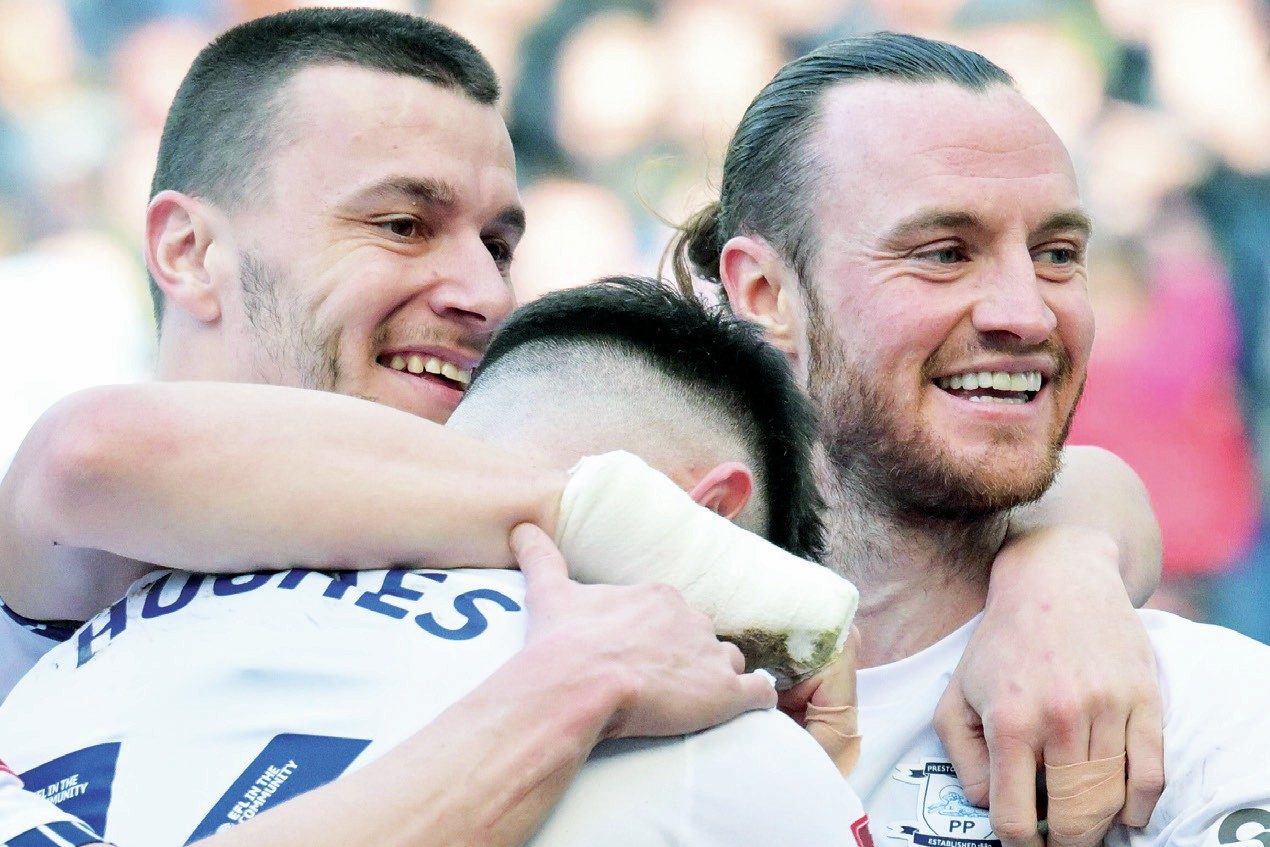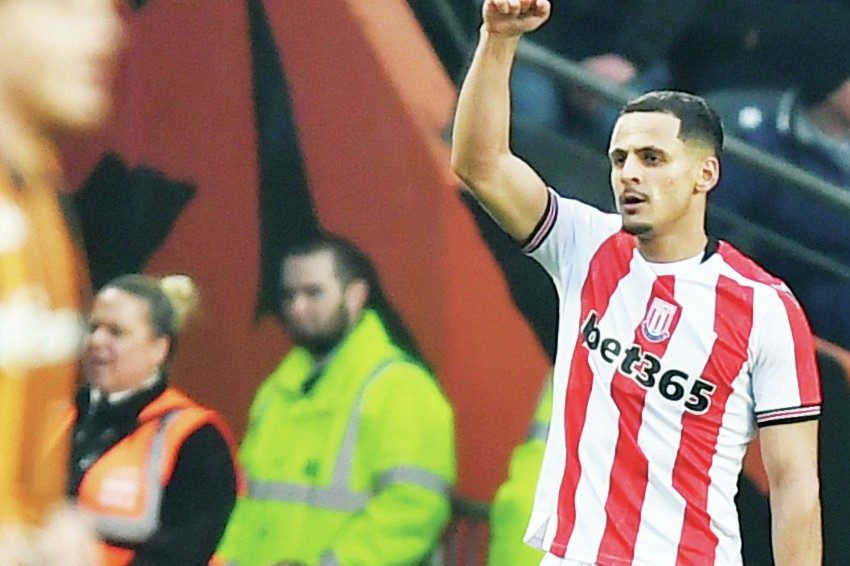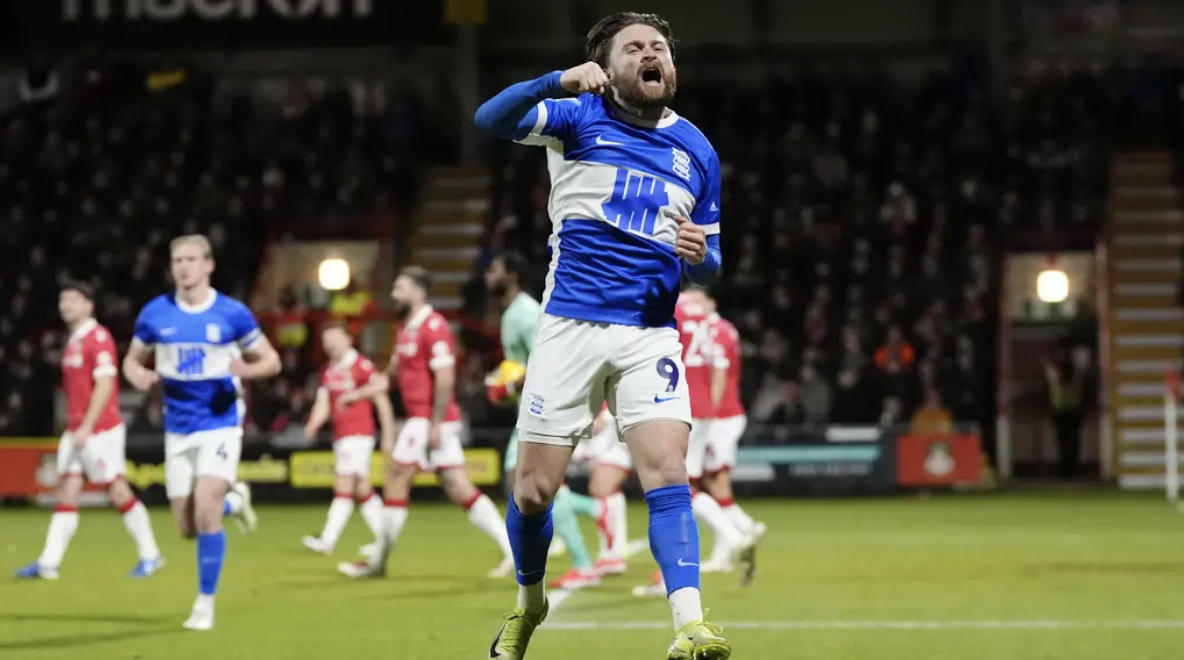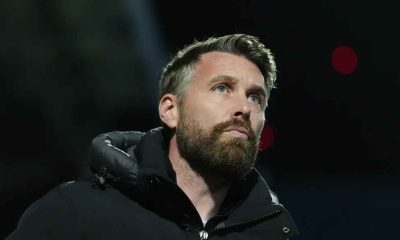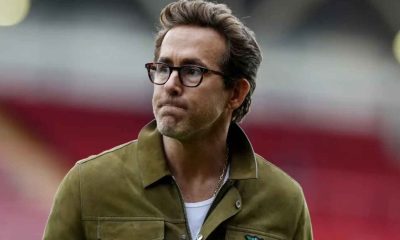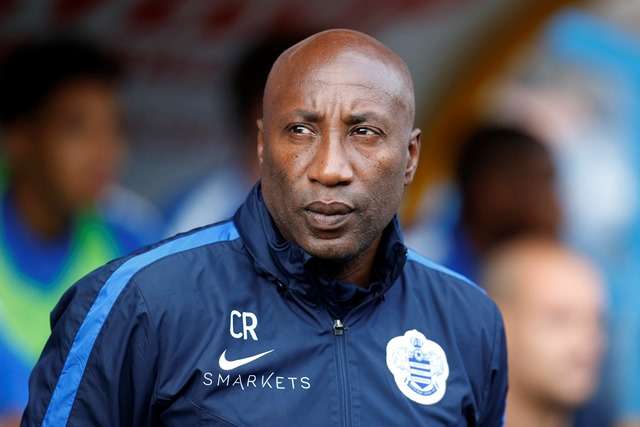
HOW good a coach is Chris Ramsey? A swift glance at the next Tottenham team sheet should tell you everything.
When the 53-year-old arrived at White Hart Lane as assistant to academy chief John McDermott in 2005, the last youth product to truly make the grade was Ledley King, by then nudging 26.
A decade on, you can barely move for homegrown talent; Harry Kane and Ryan Mason, Danny Rose, Nabil Bentaleb and Andros Townsend. Steven Caulker is on loan at Southampton, Jake Livermore a regular at Hull.
Most in the Premier League. Many of them internationals. All guided by the nurturing hand of Ramsey.
“He was massive for all of us,” says French midfielder Bentaleb, now 20. “He believed in us, he encouraged us. He told the manager we were ready when everyone else believed we were not. He was not shy or scared of anybody and he knew exactly what he wanted.”
These days, those sentiments are echoed across the game. With an MSc, ten diplomas and myriad other qualifications, Ramsey is so highly educated that he actually sets the test for pro licence candidates.
Yet his entry into coaching was largely accidental and his route to the top littered with soul-sapping obstacles.
A decent, hard-tackling full-back nicknamed Rambo, Ramsey played for Charlton as a schoolboy and completed his apprenticeship at Bristol City before joining a Brighton side on the rise under Alan Mullery.
“He was quite a shy lad back then but he had everything you want in a full-back,” said team-mate Andy Ritchie. “Aggression, pace, agility – and he could tackle like a demon.”
Ramsey played in the 1983 FA Cup final defeat to Man United – “a special moment”, he said – but it would prove the zenith of his playing days.
Though a Division Four champion with Swindon under Lou Macari in 1986, niggling back injuries gradually robbed him of mobility and, by 1989, he was forced to retire at the age of 26.
“I thought I would be OK because I had a few little businesses going,” he said. “Unfortunately, I soon realised I’d overestimated my acumen. In the end, I had to get the boots out again within two years.”
Broke and directionless, Ramsey played for Maltese side Naxxar Lions, then Cocoa Expos, an amateur outfit in the United States. “I had to change something,” he said. “So I started studying.”
And how. Ramsey worked as a personal trainer in a gym, learned rehab techniques, put himself through courses on physiology and anatomy. He even hired a tutor to teach him maths so he could apply for university.
Next came a return to London and that Master’s course in Health, Physical Education and Recreation, followed later by his UEFA badges and a stint in charge of Leyton Orient Ladies.
“If I didn’t get a job because there was someone better, fine,” he said. “But there was no way I was going to allow anyone to tell me I was not qualified enough.” Initially, at least, the hard work paid off. Appointed by the FA in 1998, Ramsey guided the England Under-20 side to victory in the FIFA World Youth Championship, and worked as a scout for Kevin Keegan.
But after a disastrous three-month spell as assistant to Ricky Hill at Luton, Ramsey once more found himself on the scrapheap. Suddenly, his CV counted for nothing, calls went unreturned.
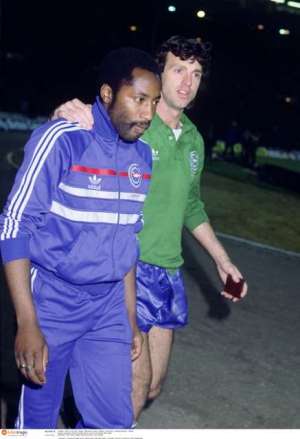
Sombre: Ramsey consoled after Brighton’s defeat in the 1983 FA Cup final (Photo by Action Images)
By November 2001, he was helping a social worker friend run football programmes for underprivileged young people on the Broadwater Farm Estate in north London, waiting for the phone to ring. The only call came from Charleston Battery in the USA, a club he would manage for the next three years.
Hill would never work in England again and the whole experience convinced Ramsey that black coaches faced a glass ceiling.
“There is institutional racism,” he said at the time. “I’ve been around and worked hard to get qualifications, and I believe it is much harder for black coaches to be given opportunities. We’re still seen, somehow, as not management material.”
That conviction has never left Ramsey, but nor has it stopped him. After winning the USL A-League (second division) with Battery in 2003, he accepted an offer to join Spurs as head of player development.
And it was there that his finest work would be done, crafting a generation of England stars in tandem with Les Ferdinand and Tim Sherwood.
“He is one of the best coaches in the country,” Ledley King told the Evening Standard in 2012. “The youngsters love the way he works and they have really bought into his methods.
Ramsey left Spurs in 2014 to take up a coaching role at QPR. And in February, more than 25 years since he took those first steps into coaching, he was made a Premier League manager.
“I’m pleased,” he said. “But I want to be as humble as possible. As soon as you put yourself on a pedestal, it’s easy to fall off. And, at the moment, I’ve only got a couple of steps to fall.”


Fantasy Football League
Fantasy Football League 2025-26 – Enter Now
Championship
Sky Bet EFL Fixtures Revealed for 2025/26 Season

